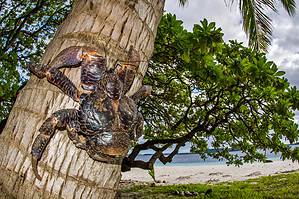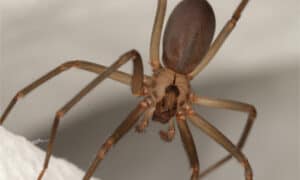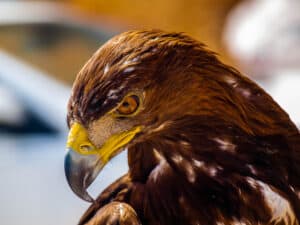Known far and wide as itchy blood suckers, fleas are more likely considered pests than pets. But do they only eat blood? And what can we learn about them other than how to dispose of them?
What do fleas eat? Fleas eat blood from humans or animals, feces, skin cells, and plant matter. They need blood in order to reproduce, but flea larvae have much different dietary needs than adult fleas.
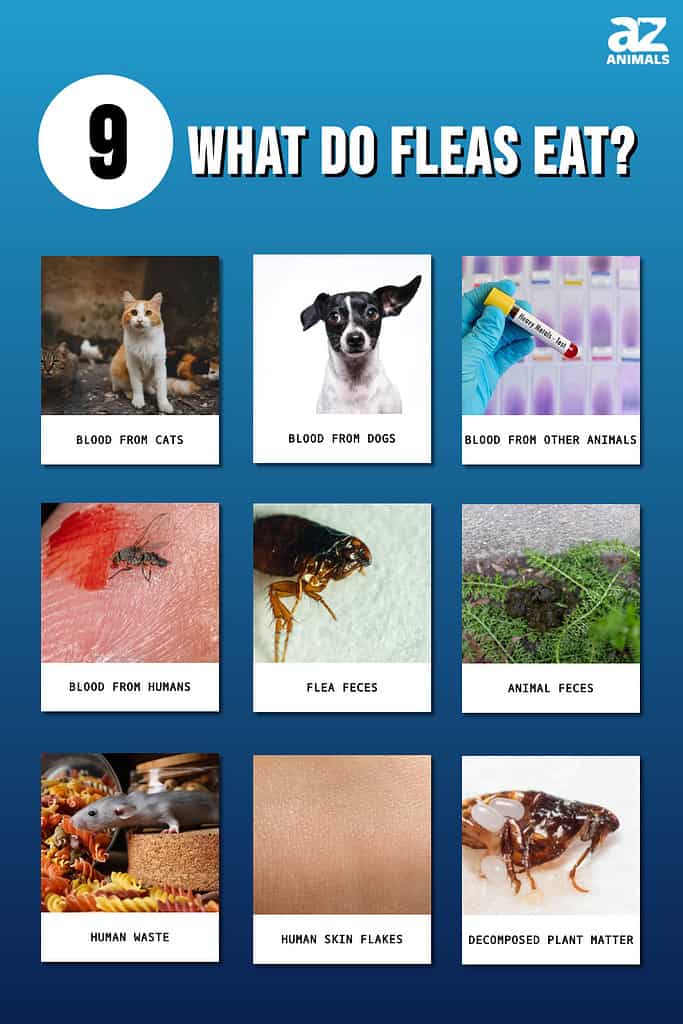
But what might some of these other dietary needs be? And how are fleas so good at feeding on our blood and the blood of our pets? Let’s learn more about these pests now.
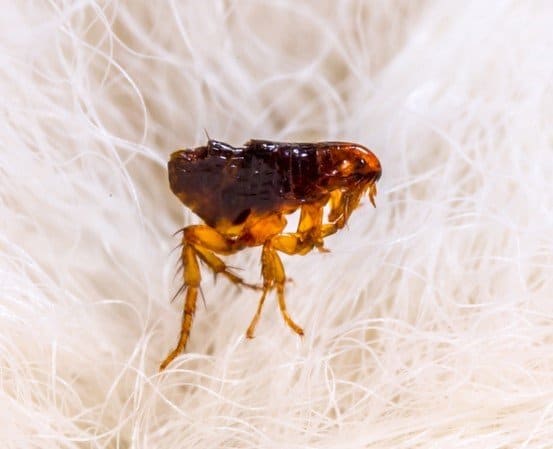
©Vera Larina/Shutterstock.com
What Does a Flea Eat?
A flea eats blood from humans, blood from pets, feces, and decaying plant or animal matter. They are best known for being hematophagic, or a creature that dines on blood more than any other food source.
However, it is safe to say that fleas are omnivores, given their ability to eat just about anything. Flea larvae and baby fleas often eat flea feces or other feces, as well as decaying animal and plant matter before they start sucking blood.
While none of this is very pleasant, fleas need to eat too! Let’s go over a complete list of what fleas have been known to eat.
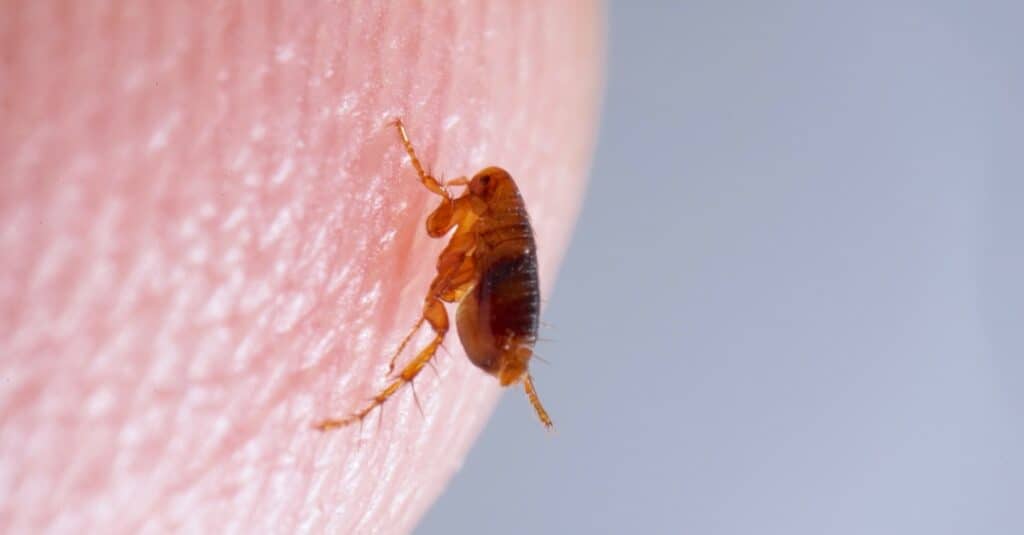
.
©iStock.com/S.Rohrlach
A Complete List of 9 Foods Fleas Eat
Here is a complete list of foods we know that fleas eat:
- Blood from cats
- Blood from dogs
- Blood from other animals
- Blood from humans
- Flea feces
- Animal feces
- Human waste
- Human skin flakes
- Decomposed plant matter
Flea larvae can’t drink blood right away, given that their mouths and ability to jump have not developed yet. Instead, larvae consume the feces from adult fleas, and this is where they first taste blood.
There are different species of fleas as well; the cat flea is the most common. There are dog fleas as well, though cat fleas are more likely to bite our pet dogs than dog fleas are! Cat fleas are obligatory parasites. This means that they rely on blood from living hosts.
Thankfully, fleas don’t infect our bodies internally. They merely live on the outside of them. Let’s take a look at just how much exactly a flea eats in order to survive.
How Much Does a Flea Eat?
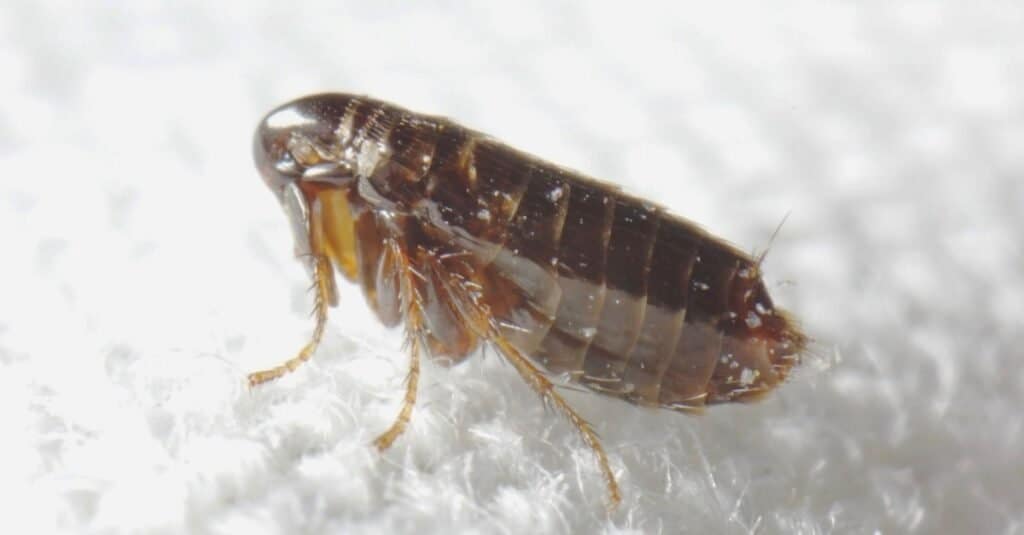
Flea larvae can’t drink blood right away, given that their mouths and ability to jump have not developed yet.
©iStock.com/S.Rohrlach
A flea eats as much as 15 times their body weight in blood, according to the Journal of Medical Entomology. They can drink around 13 microliters of blood per day, which doesn’t sound like very much.
However, given a flea’s microscopic size, this is a decent amount of food. They tend to overfeed, and some fleas have been known to turn almost purplish in color after they have had a full meal of blood.
This isn’t what any pet owner wants to hear, but it could help explain why you and your dogs or cats end up with so many flea bites if you have an infestation. Fleas aren’t shy about eating- they want to make sure they are nice and full at all times!
Larvae consume almost as much as adults, and they require blood from adult flea feces in order to live. They will also consume dead skin cells and decaying plant matter should it be convenient or if blood is not available.
How Does a Flea Eat?
A flea eats using its arrowlike mouth, shaped and pointed to promote easy feeding. It also has powerful suckers inside of its mouth that allow a flea to penetrate skin and suck out the valuable blood found within.
Fleas are also capable of feeding off of a living creature’s capillaries rather than more vague parts of the body. Having the ability to find and take advantage of our capillaries allows fleas to use our blood pressure against us.
With a more pressurized flow, fleas can feed faster on both our blood and the blood of our pets. They have exploratory senses that probe our skin in search of capillaries, and then they have a saliva they secrete in order to further seek out our blood.
Fleas bite down once they have found an adequate capillary. They then introduce more of their saliva, as it has anticoagulative properties and softens our skin so that they can bite and suck easier.
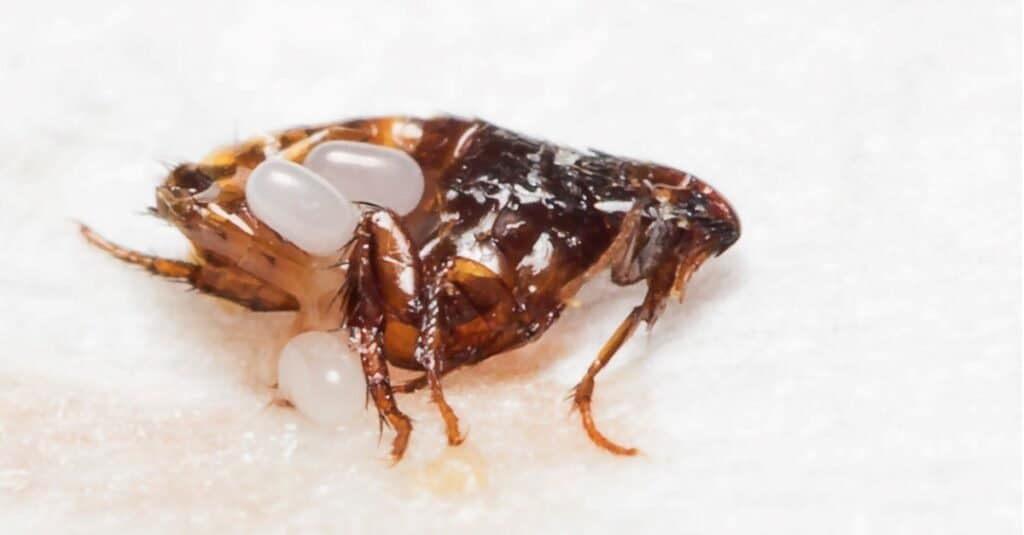
.
©iStock.com/FMT Fotografia
Why Do Fleas Make Us Itch?
A flea’s saliva often makes us itch. The simple act of fleas searching for a capillary is enough to cause itchy bites. Their ability to jump almost 200 times their body length doesn’t help in destroying them either. There are many ways to prevent fleas on your house pets, but ridding your home of an infestation may require help from a pest control service.
While none of this is particularly pleasant to think about, it does give us valuable insight as to how fleas feed on our cats, dogs, and other humans. They are often disturbed while feeding, but they always return to the same location.
This is why flea bites often congregate in the same location on the body. They don’t want to go searching for a valuable capillary again! Once your cat or dog falls back asleep, the fleas will bite again.
No matter what, these bugs are some of the most unique creatures on the planet. Their ability to feed, jump, and otherwise exist is remarkable- though annoying to most cat or dog owners. These pests are tough to exterminate, even though they only live an average of one to two weeks.
Summary of 9 Foods That Fleas Eat
| Number | Foods |
|---|---|
| 1 | Blood from cats |
| 2 | Blood from dogs |
| 3 | Blood from other animals |
| 4 | Blood from humans |
| 5 | Flea feces |
| 6 | Animal feces |
| 7 | Human waste |
| 8 | Human skin flakes |
| 9 | Decomposed plant matter |
The photo featured at the top of this post is © Vera Larina/Shutterstock.com
Thank you for reading! Have some feedback for us? Contact the AZ Animals editorial team.




